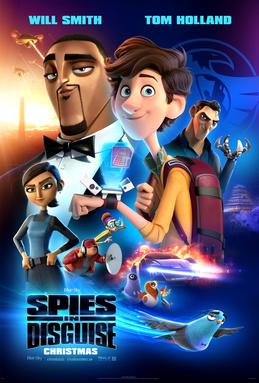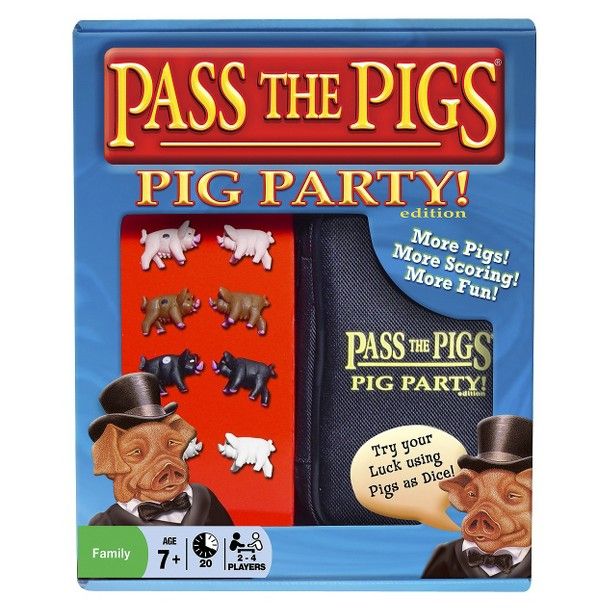“Lhálali’s bloody viscera,” Eešan cursed. She searched the cliff face for a hold and found nothing. Finally she spotted a thread-thin crack and wedged her wingtip claw in it so she could reach upward with her stubby grasping-hands.
“Watch out,” Aušidh said. “If you fall now you’ll get hurt, won’t you?” She dipped in a little swoop less than a winglength away from Eešan in the air. The shadow of her wide membranous wings rippled across the uneven stone and the little burst of wind ruffled the sparse black fur on Eešan’s back.
The others circled farther away, the curves and points of their silhouettes slowly churning the air as they gawked. Eešan was putting on enough of a spectacle that half her hatchmates had turned up to watch.
“Yes,” Eešan said tightly. It made her feel sick to have to speak her fear out loud. “If I fall, I’ll die.”
“Oh.” Aušidh circled up and around again, landing on the cliff face just beneath Eešan, her grasping-hands and wingtips confidently catching in a clean four-point landing on the irregular stone surface. “I didn’t think you were that high up yet.”
“Don’t be stupid, you wouldn’t die,” Xhufu called down from her perch on a little outcropping several winglengths higher than Eešan. “You might break a bone if you didn’t slow yourself at all, but anyone can glide if they try.”
“Of course she would die if she fell,” Dhabelh scoffed, dropping to hang upside down from her grasping-hands to get her face closer to the conversation. “Eešan is pinwinged, what do you think pinwinged means?”
Eešan clenched her jaw and reached up. For her hatchmates the sick terror that twisted in her chest might as well be a vague rumor. As far as Xhufu could understand, anyone could glide. She couldn’t comprehend the hard, boring reality of life with only one functional wing.
Eešan’s left wing wrist had broken as she hatched; her shell had been too thick and her eggclaws too weak. The complex joint had healed as gnarled as a wind-sculpted eešanyalh bush on the edge of a canyon. Now, she was so pinwinged that she could barely get herself around the rookery on the ropes and baskets used to ferry babies and the elderly up the cavern sides. She had never had the strong, flexing shoulders that propelled her hatchmates as they ate up the sky.
“We could get you down, Eešan,” Uliinh said. She launched off the side of the cliff and into the air, flying across Eešan at a diagonal and latching onto the rocks above her. The turbulence of Uliinh’s wings almost knocked Eešan loose. For a frantic beat of her heart Eešan clenched at the stone, pulling her misshapen left wing as close as it would come to her body to keep from falling to her death.
“Between the four of us,” Uliinh said, “we could glide you down again. You don’t have to prove anything, you know. Just be patient with the Choir, they’ll persuade themselves.”
Eešan huffed out a bitter laugh and reached up again, hauling her body another winglength up the cliff. Uliinh was wrong, twice over—Eešan wasn’t sure even this dramatic scene she was throwing would be enough to convince the Choir, and she was sure Uliinh couldn’t catch her if she fell—but she didn’t have it in her to argue and climb at the same time.
Twenty winglengths above her, the orange-brown sandstone turned red with the handprints of every adult in the rookery. Sun beat down on the painted prints; the heat on her back and head was making her dizzy. The sunlight on the dips and protrusions in the cliff face cast tricky small shadows, fooling the eye into seeing room to maneuver where there was none.
The color difference between the dark gray siltstone at the bottom of the cliff and the paler white and orange sandstone layered above it created temperature fluctuations that made the drafts here unpredictable and sharp. That combined with the strange shape of the cliff was what made it the Cliff of Hands, where each child of the rookery flew into adulthood. Only a skillful flyer could come at the Cliff at just the right angle to make a pass at the Hands and, without landing, leave a handprint there on top of the cloud of handprints left by the rookery’s ancestors.
Only a skillful flyer could earn adulthood, the right to raise their voice in the Choir, and the rookery’s respect. She knew that respect would only ever be partial for someone pinwinged, but she wanted it desperately anyway, craved every speck of it she could get. Thinking about it twisted the fear in her chest into rage, and she channeled it into her muscles, powering her another winglength upward.
There—a crevice in the cliff face gave her holds for both the clawed digit at the tip of her right wing and her right grasping-hand.
She concentrated on the rock, ignoring her hatchmates chattering and fluttering around her, and stretched her left grasping-hand as far up as it would go. That wasn’t very far: grasping-hands were good for landing, latching on to a surface and clinging, but climbing steadily upward wasn’t a movement that came naturally. Her short lower limbs could only reach half as far as her wings, making her progress slow and awkward.
“This is so pointless,” Dhabelh said. “Even if you make it all the way up to the Hands—and I don’t think you’re going to—it’s not going to count.”
Eešan was glad that at least Dhabelh wasn’t trying to imagine how Eešan was going to get down. At the edge of her vision, sweat blurred the shapes of individual bushes and rocks below together with their own shadows into a rust- and copper-colored blanket.
More sweat gilded the tough membrane that stretched along her sides from the long tips of her wingfingers to the outer edge of her grasping-hands, but her broken wing couldn’t stretch out to let the sweat evaporate in sheets. She’d always had trouble regulating her body temperature because of that.
“It has to count, doesn’t it?” Aušidh flitted behind her, one side to the other side and then back again.
Eešan scowled and pointedly oriented her ears away from Aušidh, ignoring her.
“No.” Dhabelh hung from one grasping-hand, then switched to the other, making climbing look easy. Of course, if she lost her grip and fell, her wings would catch her. “That’s not flying the Hands. She’s not flying it.”
“There’s no rule about flying it.” Aušidh sounded puzzled and Eešan squashed an intense flare of frustration. Aušidh was always so frustratingly naïve. “You just have to put up your handprint. That’s what I did.”
“No one’s been stupid enough to try this before,” Xhufu put in. “Who knows what people will think.”
“But Aušidh, you flew it. How does the ritual go?” Dhabelh’s question was rhetorical; everyone knew how it went. “You take off a child and fly into the cloud of ancestors and land an adult.”
“It would still count,” Aušidh insisted.
“We would need a Choir to decide,” Xhufu said. “Eešan, did you ask what everyone thought? I didn’t hear about it.”
“I didn’t hear about it either,” Uliinh said.
“If you didn’t hear about it, obviously I didn’t ask for a consensus yet,” Eešan muttered. She did not have the patience for this conversation right now. “You fire-shit sun-eaters.”
The dust from the cliff stained her belly and chest a dusty orange, bright against her black skin. Sweat gathered under the bandolier that crossed her torso. To save on weight, she’d taken everything off it except for a hand-sized grass basket full of paint. She’d woven the basket herself, spent weeks collecting clay, watadh eggs and the eešanyalh bark that gave the paint its bright red color.
It had taken help, another way she was ruining the ritual. She couldn’t fly, so she couldn’t gather eggs from the watadh nests on the cliffsides herself. Although Pwabeš hadn’t asked why Eešan wanted the eggs, Eešan hadn’t been keeping her plan a secret. But she hadn’t tried to present it to the whole rookery either. She’d been too afraid they’d tell her she wasn’t an adult so she wasn’t qualified to make the decision to risk her life for social status.
She was so shitting tired of being a child.
Eešan climbed silently for several minutes and Dhabelh and Xhufu flew off—not far, just catching a thermal until they rose above the clifftop and soared there, in sight but beyond talking range. Aušidh and Uliinh stayed on the cliff face with her.
Ten winglengths to the bottom of the Hands. Uliinh shifted on the rock impatiently, flapping out into the air and then returning to the same spot. She was waiting for Eešan to give up; she probably had some stupid plan to call the others in to carry Eešan to the ground when her limbs gave out. The bottom of the canyon was too far below for that heroic plan to work, though, Eešan knew. If she reached the sunset alive, it would be because she’d climbed not just to the bottom of the Hands but all the way to the top and over the lip of the Cliff. That way she could rest and then shuffle down the slope on the other side.
Her chest was tight with fear she was losing the will to ignore. She reached up, her pulse loud in her ears. The movement triggered the ache in her limbs that would eventually weaken her. Eventually, she wouldn’t be able to climb.
When she’d been planning, she hadn’t thought she could be this terrified, not the whole time. She’d imagined herself as more courageous, as losing the fear once she began. Now it was too late to back down. She would be strong enough, or she wouldn’t.
It was almost funny. She’d trapped herself into seeming brave.
Six winglengths below the Hands, the rocks jutted out from the cliff and she had to climb up and out, clinging under the rock over empty space. Right wing, left grasping-hand, right grasping-hand. Her left wing membrane caught the air and the wind tried to suck her out into thin air. She flexed her shoulders, twisting hard to pull herself back flush with the stone above her. Right wingtip again, and as she pulled herself up the protrusion, a gust of wind threw a scatter of sand in her face.
“Be careful,” Uliinh said. She half-spread her wings then paused.
“Yeah, thanks,” Eešan couldn’t help snapping. Uliinh, with her strong symmetrical wings, wasn’t the one with something to fear here. Yawning emptiness ached underneath her.
Without a spare hand to wipe her eyes, she had to wait for the breeze to dry the blur of sandy tears. When she could almost see again, she reached with her right grasping-hand and dug her fingers into a thin crack in the stone, moving herself sideways to get around the edge of the protrusion and back to a section of the cliff that was merely vertical.
The tricky wind blew up against her, pressing her helpfully into the stone. She wrapped her left grasping-hand around a knob of sandstone and hauled her body up.
Then the crack shifted under her right grasping-hand, the whole layer of stone sloughing away from the cliff. The wind caught her right wing membrane. It sucked at her, pulling her out and away.
Her left wing scraped uselessly against rock. Her left grasping-fingers began to slip off the round knob of stone.
No. Staying a child forever was a kind of death, and she had rejected it. She rejected the wide open space just as strongly, with sick sharp twist of her guts.
The gritty stone tore sharply at the pads of her fingers, bright red flashes of pain in a thundercloud of fear.
“Ancestors and descendants,” Aušidh swore as she finally noticed that Eešan was falling.
Eešan’s flailing right wingtip claw caught on a small divot in the stone with an agonizing twist—caught, and held.
Her right grasping-hand found another small flaw in the stone. She shoved her fingertips into it, grinding the rough stone into the raw scrapes on her fingers like friction could fuse the two surfaces into one.
Breath rushing in short, panicked pants, Eešan pressed her torso and wings as close to the cliff as she could. Her heart drummed in her ears, fear and relief fusing together. It had happened so quickly. Death one second, and then she’d caught herself.
“Skwayašúliwa’s shitting mouth,” she breathed. She was alive.
Aušidh hopped belatedly into the air and fluttered to a spot just below Eešan like she thought she’d be able to catch her if she fell.
“Dhabelh, Xhufu!” Uliinh whistled, calling them down from the thermal.
“Stop worrying,” Eešan said. When she risked a glance up she saw bright red blood seeping out around the base of her right wingtip claw. She’d splintered it. “Shit.” She laughed, a little hysterically. “If I fall that means the Choir will have to count me as an adult, right? If I die in the middle of this they’ll talk about my corpse like I’m a real person?”
“No!” Aušidh said. “Stop talking like that, Eešan.”
“I’ll talk how I shitting want to.” The giddy panic rush was making her rude. Ruder. She didn’t care. The Hands were right there.
Two more painful winglengths up and the stone in front of her face turned red with old paint.
“Need a hand?” Xhufu snickered as she landed a winglength away. “Get it? A hand?”
For Xhufu there was nothing dangerous happening here. The reminder hurt like an old, deep bruise. Eešan squeezed her eyes shut for a second, then opened them to grope for her basket of paint.
“Here.” Aušidh shifted closer and reached out, turning the loop of bandolier that had migrated as Eešan climbed until the paint was behind her back. “Can you reach it?”
“Thanks.” Eešan dug the fingers of her left grasping-hand into the thick paint. It was almost too dry to use after baking in the sun so long, but she spit into her palm and made a fist, squishing the paint in the moist saliva and spreading it around.
Then she reached out and pressed her hand to the Cliff. When she pulled it back, a fresh red print shone out at her.
It looked exactly like every other handprint: three fingers, a thumb, the pads of her palm forming a sacred three-sided circle. For once, she was no different than anyone else, now or at any point in the tangled nest of history that cradled the rookery. Eešan shut her nostrils flat like she was in a sandstorm, an indescribable feeling rising up in her lungs. Relief and anger all mixed together with pride and the spitting bluster that had gotten her all the way up here.
She’d done it.
“How much longer is this going to take?” Dhabelh asked.
“Why? Getting hungry, lump-ass?” Aušidh said.
Eešan took another long moment to memorize her handprint. She would probably never see it again; she couldn’t just fly past it to confirm it existed like everyone else could. Then she reached upward for her next hold.
“I saw you put your handprint there,” Dhabelh persisted. “So you don’t need me here anymore.”
“Right,” Eešan said. Her grasping-hands throbbed. “You can go if you want to.”
“Stay, Dhabelh.” Uliinh rolled her neck worriedly. “She isn’t down yet. What if she falls?”
“Even if you force the Choir to admit you, everyone is still going to know you didn’t fly it,” Xhufu said. She spread her wings, ready to launch. Eešan could see the sun glowing through Xhufu’s wing membranes, the light picking out each vein that ran through them, before she dove sharply to the side and came out of it a hundred winglengths away.
Eešan would never know what that was like, to dive like that. To get the last word in a conversation because she could just escape it.
“That rotten intestine was supposed to stay until you reach the top,” Aušidh grumbled. She climbed at Eešan’s pace, a few winglengths below her. “She’s selfish. I don’t know why you told her about this.”
“The Choir will listen to her,” Eešan said, although she wasn’t sure it was true. Her wingtip was leaving small streaks of blood on the half-faded handprints she was climbing over. It would take months for the claw to recover from this abuse. It would probably blacken and fall off before it healed. “She’s not a liar—she’ll confirm that she saw me place my Hand. It won’t be just my friends witnessing for me.”
Aušidh cleared her throat of dust and spit a hunk of phlegm off to the side, obviously a commentary on Xhufu. Uliinh drifted into a shady spot and clutched at the stone, watching, waiting for Eešan to fall. Dhabelh surprised Eešan by joining Uliinh instead of following after Xhufu.
The top of the Cliff waited several dozen winglengths above her. Eešan climbed.
© 2019 by Joanne Rixon
 Joanne Rixon organizes the North Seattle Science Fiction and Fantasy Writers Meetup and is a member of STEW and the Dreamcrashers. Her short fiction has recently appeared in The Malahat Review, Fireside, and Terraform, and you can find her on twitter @JoanneRixon.
Joanne Rixon organizes the North Seattle Science Fiction and Fantasy Writers Meetup and is a member of STEW and the Dreamcrashers. Her short fiction has recently appeared in The Malahat Review, Fireside, and Terraform, and you can find her on twitter @JoanneRixon.
If you enjoyed the story you might also want to visit our Support Page, or read the other story offerings.






